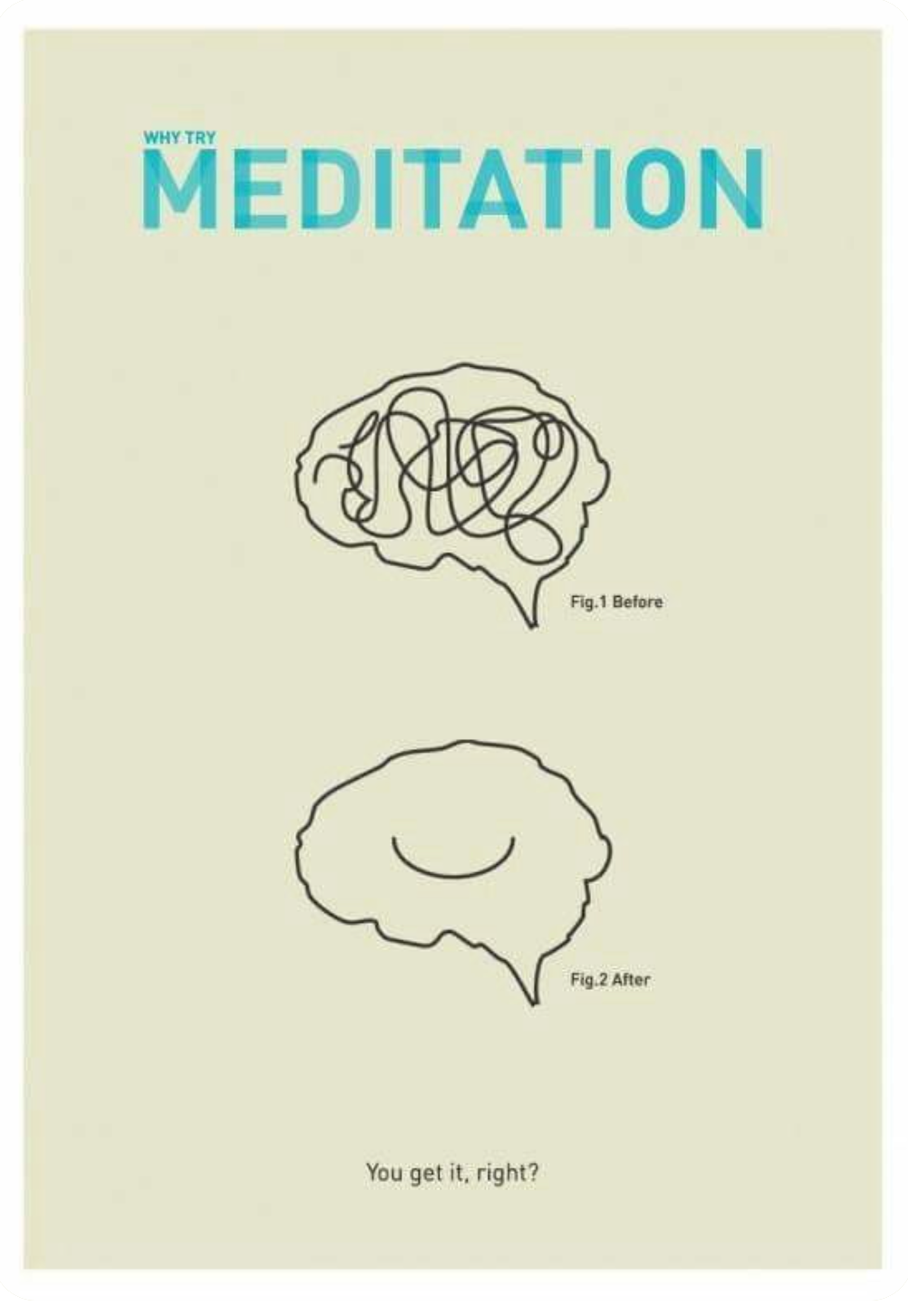Meditate.
Ok deep breath, or maybe a few box breaths ….
I warned you this day would come.
This week I’m going to strongly recommend you try the Free 10 minutes for 10 days from Headspace and give meditation a go.
I know, I know.
It’s the worst.
I think it’s the worst too.
And I still do it every. darn. day.
It’s the hardest easy thing to do that really, really makes a huge difference to your Nervous System’s ability to handle stress.
“If I can do it, you can do it. It’s time to try meditation (for the first or 500th time)”
If you’ve ever noticed my ‘Thoughts are Clouds’ phone case it’s referencing the blue sky (our natural state) and the clouds, fluffy and fun or dark and less fun, just passing on through (our thoughts).
(if you haven’t, I’m happy to show you, I designed it myself though so don’t get prepared to be blown away)
Yes, knowing that it would appear I LOVE meditation.
Nope.
Still have to make myself do it.
And after starting and stopping countless times (literally, I couldn’t begin to count, it’s a lot) meditation is now a non-negotiable.
Here’s what helped me most:
Understanding that the point of meditation is not to sit with an empty mind in bliss
(if you can do that you can stop reading)
The whole goal is simply to notice when you lose focus of your breath and bring it back
So the whole point is that you’re going to suck at it!
You won’t be able to stop thinking and wondering when it will end, planning your meals for the week, and wanting to get up AND you’ll start to notice when your attention gets pulled off track and be able to pull it back.
Just imagine how great this skill is in your everyday life. The ability to notice when you need a course correction.
No wonder this super sucky habit is so popular.
So I’m asking you to just try the free 10 minutes for 10 days.
Yes, even if ‘you tried meditation and you can’t do it, it didn’t work for you, it’s not your thing’.
It’s worth trying again. And again. And again.
Because:
Benefits of Meditation
(1) It amplifies your adjustments
When you’re getting adjusted we’re looking to release blocks (subluxations) to your Nervous System functioning at its greatest potential (and therefore, YOU functioning at your greatest potential because you live through your Nervous System. We all do. It controls E V E R Y T H I N G. No exceptions.)
Meditation is like taking a course on how to better work with YOUR Nervous System. It’s like a software upgrade. And it’s free.
(2) It keeps your brain young
A study out of UCLA found that long-term meditators had better-preserved brains than non-meditators as they aged. "What we actually observed was a widespread effect of meditation that encompassed regions throughout the entire brain." (ummm, yes please)
(3) Meditation Reduces Activity in the Brain’s “Me Center"
A study done at Yale University found that mindfulness meditation decreases activity in the default mode network (DMN).
***Note: DMN is responsible for mind-wandering and self-referential thoughts – a.k.a., “monkey mind.” It’s active when our minds are just wandering from thought to thought.
Since mind-wandering is associated with decreased happiness, ruminating, and worrying about the past and future, it’s all the way to good to dial it down. Meditation does that and even when the mind does start to wander meditators are better at snapping back out of it.
(4) Meditation May Lead to Changes in Key Areas of Your Brain
At Harvard, they determined that meditation changes the structure of your brain,
increasing cortical thickness in:
the hippocampus (learning and memory)
areas of the brain that play roles in emotion regulation and self-referential processing
decreasing brain cell volume in:
the amygdala (fear, anxiety, and stress)
AND
the changes were linked to improvements in subjective experience with improved mood and well-being
(This is why I always focus on function because when function improves how you feel improves too)
(5) Improves Concentration and Attention
One of the central benefits of meditation is that it improves attention and concentration: One study found that just a couple of weeks of meditation helped people’s focus and memory during the verbal reasoning section of the GRE, an increase of 16% (nothin’ to sneeze at).
(6) Meditation enhances empathy
Loving-kindness or compassion meditation fires neural connections to brain sites that regulate positive emotions like empathy and kindness.
(7) Meditation and Pain
A study found that meditation reduces pain sensations in the body without using the brain’s natural opiates and points towards adding meditation to treat pain conditions like osteoarthritis, headaches, and other chronic pain issues.
Honestly, I could keep going there is no shortage of evidence-based research that supports establishing a meditation practice. And I’m sure it all sounds great in theory it’s getting yourself to actually do it (or maybe I’m projecting my experience onto you?)
Here’s how I make sure I meditate every morning:
No meditation. No coffee.
I like coffee (like a lot) so that works for me.
Ok hopefully, you’re on board with at least trying 10 days …. and pushing my luck maybe, but you know what works really well post-meditation - some good ole’ ugly journaling. It’s how I start my days.
After the 10 days if you aren’t convinced I would recommend trying another style like walking meditation. That will go great with your 10-minute walks on adjustment days…. we won’t run out of ways for you to try to add this to your life!
“If it weren’t for my mind, my meditation would be excellent”
~ Pema Chodron




